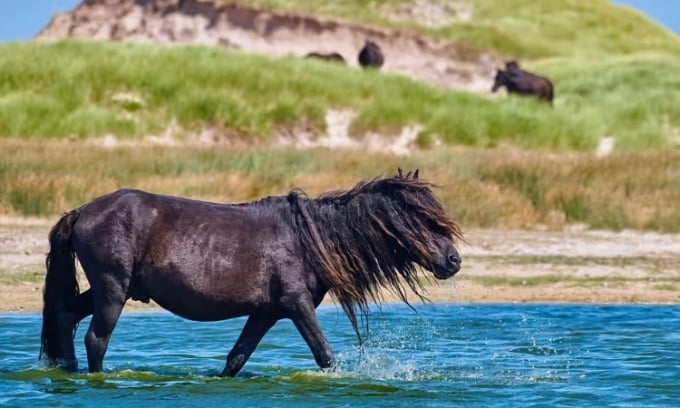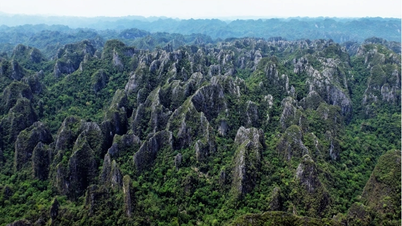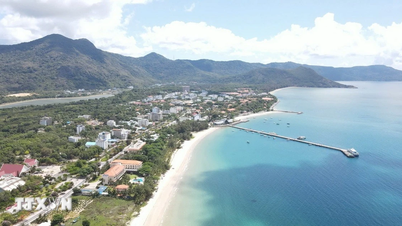Biologists say horses on Sable Island are destroying rare biodiversity on the island off Nova Scotia.

The horses were brought to Sable Island by a trader in the 18th century. Photo: Wirestock
On a thin crescent of land off the coast of Nova Scotia in the Atlantic Ocean, hundreds of horses run free, galloping along undulating sand dunes, their chestnut coats standing out against the white sand and blue sea, according to the Guardian .
Each year, the Sable Island Institute sends volunteers to count the dead horses for two weeks and send the data to Parks Canada. The horse population has skyrocketed from 250 in 1961 to a record 591 last year. Biologists worry the horses are destroying the island's rare biodiversity.
"From an animal welfare perspective, they're living outside of their proper environment and they're suffering a lot. The horse mortality rate each year is very high. They're also suffering from a lot of disease or lack of access to shelter, clean water and proper food. It's a neglected animal population that's under a lot of pressure," said Ian Jones, a professor of biology at Memorial University in Newfoundland.
Sable Island, just 12 square miles in size, is known for its rugged terrain and treacherous conditions. The island’s sprawling sandbars, dense fog, and strong tides have sunk more than 350 ships since the late 16th century. According to experts, horses were introduced to the island by a Boston merchant in the 1700s, along with pigs, sheep, and cattle. Despite the harsh environment, they have been the longest-lived, surviving on grass and freshwater ponds.
Over the past few decades, the horse population has slowly increased. Their isolation means they are more genetically differentiated than other populations. They also have very little contact with humans, making them an interesting subject for researchers.
In the 1950s, the Canadian government planned to relocate horses to work in coal mines or for slaughter. A public campaign brought the horses to public attention. Then- Prime Minister John Diefenbaker amended the Act and directed that the horses be fully protected.
Parks Canada is considering decriminalizing the horses because they have been on the island long enough to become part of the ecosystem.
An Khang (According to Guardian )
Source link






















![[Photo] Signing of cooperation between ministries, branches and localities of Vietnam and Senegal](https://vphoto.vietnam.vn/thumb/1200x675/vietnam/resource/IMAGE/2025/7/24/6147c654b0ae4f2793188e982e272651)

















































































Comment (0)